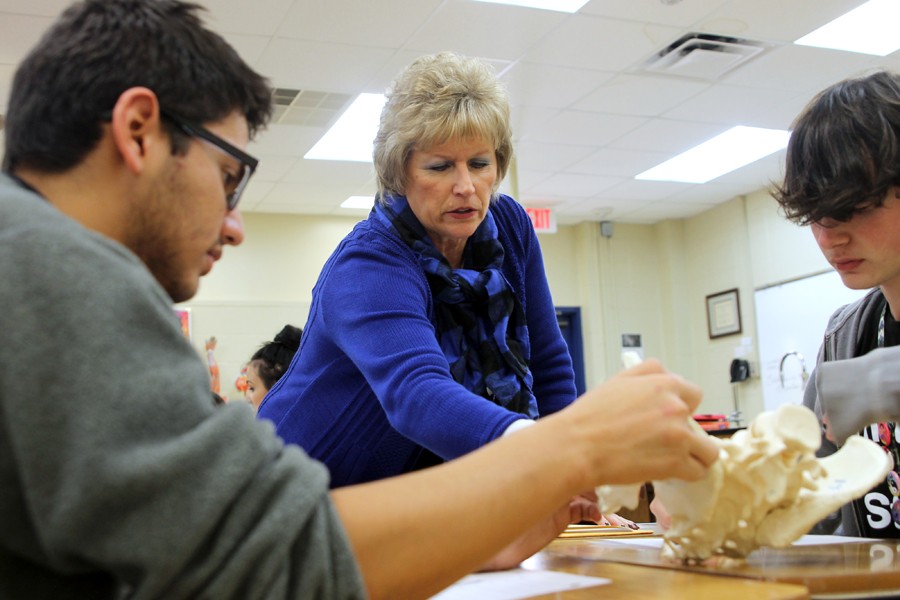If Students Graded Teachers
February 18, 2016
At the end of every semester, students begin to rely on espresso shots and late nights. It is the semiannual time of year where grades are on the verge of being due, and there never fails to be that one grade that needs to be lifted by a point or two. Students are evaluated by teachers, but teachers have their own process of being graded by administrators. However, some argue that students should be allowed to evaluate their teachers at the high school level.
Teachers have their own opinions on this system and the benefits it could provide for not only the students, but teachers as well.
“[It] would be great if students could give their input on how teachers are doing, and if they could give us feedback for how we could do better,” freshman English teacher Caroline Walton said. “I think that the most important perspective is the student’s; that’s who we’re trying to reach. It’s important for them to have a voice and be able to tell us what they think about what we’re doing.”
While some teachers might be open minded to receiving feedback, not every student thinks students should evaluate teachers. .
“I don’t think students should be able to grade teachers,” senior Trace Rhode said. “Sometimes teachers do things that students wouldn’t necessarily like, even though it is clearly in their best interest.”
While this process may seem to be a simple proposition that solely affects students or teachers, it is larger than that. This issue relates to everyone in the education system.
“[Student evaluations would be] just more data for our teachers to understand and become better,” principal Dr. Jay Pickering said. “We all have to strive to become better educators, whether it’s me as a principal, down to the assistant principals, all the way down to teachers to anybody dealing with students. What can we do to become better?”
Teachers have their own viewpoints on how implementing this system could work. There are more factors than simply handing a student a paper and allowing them to write whatever they wish.
“It would probably need to be regulated to make sure that there’s not personal attacks, that there’s an objective standard–even [one] that the students create together,” senior English teacher Lucas Nossaman said.
There are concerns on both the students’ and teachers’ behalf’s. While there are many pros to an evaluation system like this, there are still the cons that could have an effect on both parties.
“I think teachers would probably discriminate against students that give them bad grades because they [may] get their feelings hurt,” sophomore Sarah Gonzales said. “It’s superiority; they’re superior, they should be given the respect and the authority, and taking that away like ‘Oh this is your grade,’ that kind of takes away their authority in a sense.”
Students have their own worries about teachers being biased as a result of evaluations, but teachers are not exempted from feeling this way as well.
“If there is not any reciprocal hard work going on on the student’s end, then it doesn’t really matter what I am doing up here,” junior English teacher Tara Seale said. “I’m constantly trying to tell them, ‘You’re not this number.’ I’d hate for anybody to quantify themselves, and that’s what scoring and rubrics and data gathering always does to someone, is quantifies them.”
Some teachers push for a student evaluation system to be established. It is not something the district is considering, but this is something for students to keep in mind for their future college years.
“I’m all for it,” sophomore English teacher Shawn Regan said.. “Not only am I all for it, [but] I think it should be part of our evaluation. I’d be excited to see it start happening next year.”







